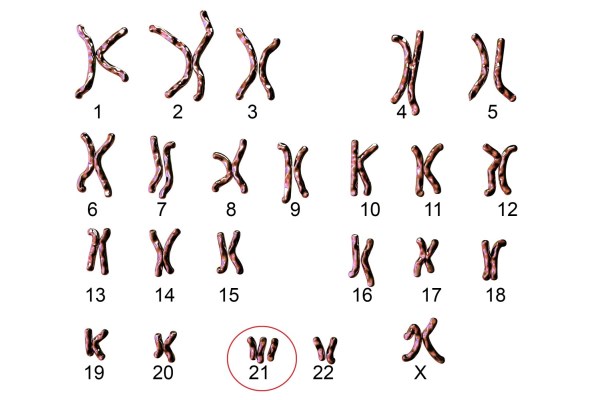Down syndrome (sometimes called Down’s syndrome) is a condition in which a child is born with an extra copy of their 21st chromosome — hence its other name, trisomy 21. This causes physical and mental developmental delays and disabilities. https://www.healthline.com/health/down-syndrome


Chromosome 21 is the smallest human autosome and encodes approximately 225 genes. The region critical for the development of Down syndrome has been mapped to a small segment of the long arm (21q). The most common forms of chromosomal change in Down syndrome are: ▪ Nondisjunction arising during the first meiotic division of gametogenesis (95% of cases); the incidence increases dramatically with maternal age, from 1 in 1000 during early reproductive years to 1 in 30 by age 45 ▪ Translocation of an extra long arm of chromosome 21 to another chromosome (5% of cases)
An atrioventricular septal defect (AVSD) is a heart defect in which there are holes between the chambers of the right and left sides of the heart, and the valves that control the flow of blood between these chambers may not be formed correctly.
Mer information on the following links. https://www.stanfordchildrens.org/en/topic/default?id=down-syndrome-trisomy-21-90-P02356 https://www.sciencedirect.com/topics/medicine-and-dentistry/trisomy-21